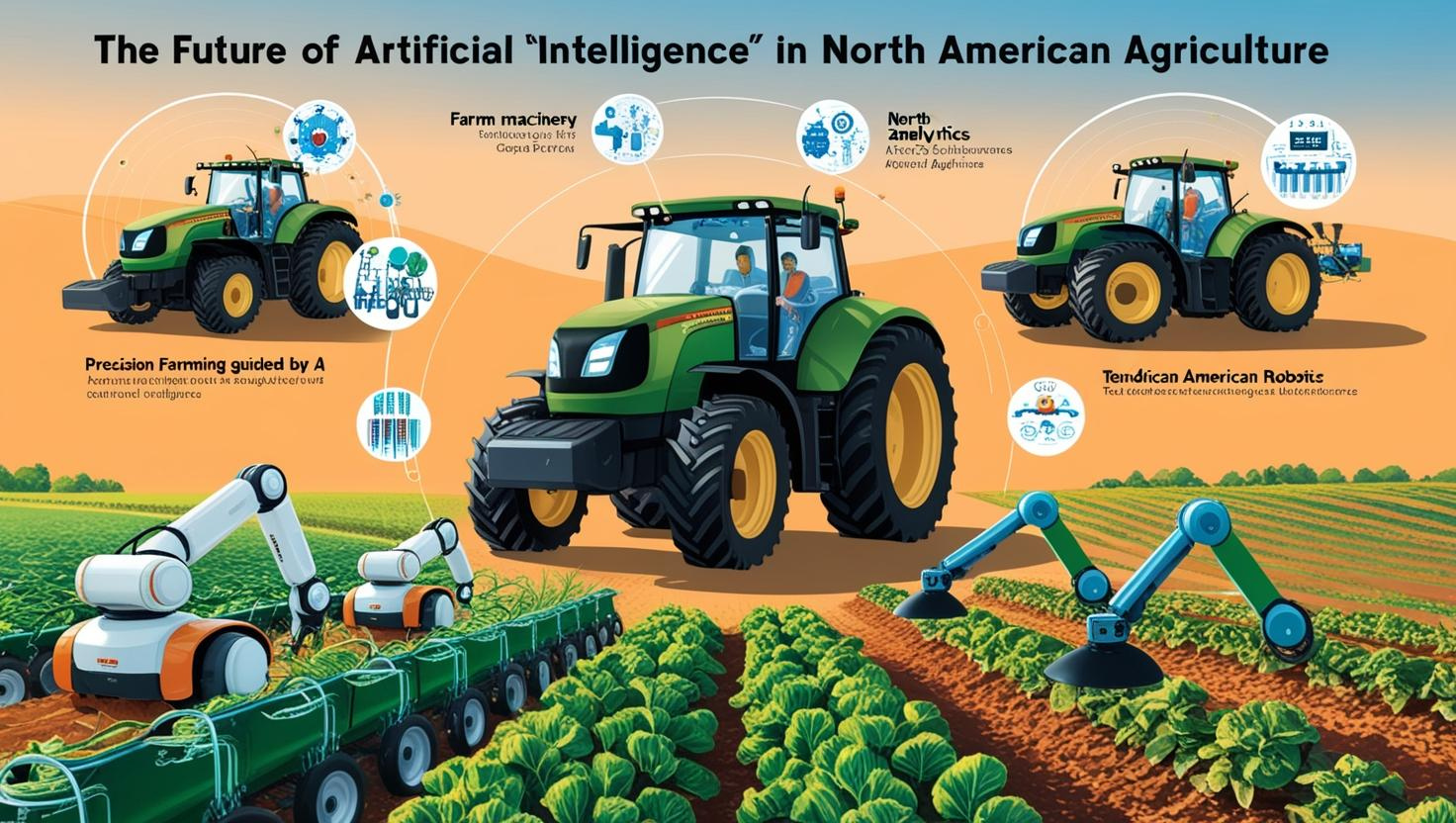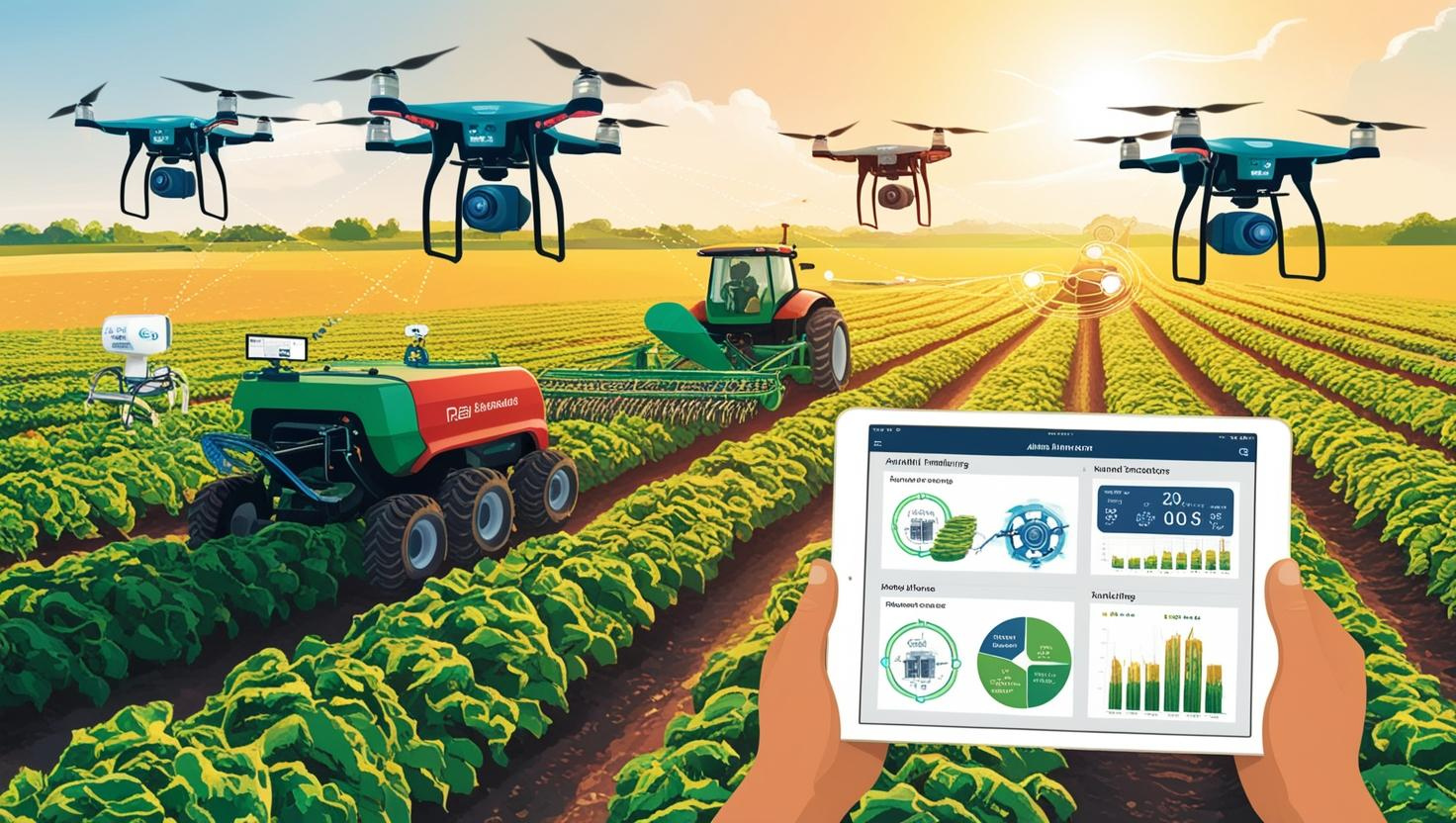AI in Agriculture Market: Unlocking the Future of Precision Farming in North America
Transforming Agriculture with AI
The agricultural industry in North America is undergoing a significant transformation, with artificial intelligence (AI) playing a pivotal role in reshaping farming practices. AI-driven technologies are revolutionizing how farmers manage their crops, optimize resource use, and enhance overall productivity. As the demand for food production continues to rise, the integration of AI into agriculture is expected to accelerate, bringing efficiency, sustainability, and profitability to the sector.
Precision Farming: Enhancing Productivity with AI
One of the key areas where AI is making an impact is precision farming. Farmers are leveraging AI-powered tools such as drones, satellite imagery, and machine learning algorithms to monitor crop health, assess soil conditions, and detect pest infestations in real time. These technologies provide farmers with valuable insights, allowing them to make data-driven decisions that maximize yield while minimizing resource wastage. The ability to predict weather patterns, identify plant diseases at an early stage, and optimize irrigation systems has significantly enhanced agricultural productivity in North America.
Download PDF Brochure for Info @ https://www.marketsandmarkets.com/pdfdownloadNew.asp?id=159957009

Automation and Robotics in Farming
Automation is another critical factor driving the adoption of AI in agriculture. The labor shortage in the farming industry has prompted the need for autonomous machinery such as self-driving tractors, robotic harvesters, and AI-guided irrigation systems. These innovations reduce the reliance on manual labor, lower operational costs, and improve efficiency in large-scale farming operations. AI-driven robots are capable of performing tasks such as planting, weeding, and harvesting with precision, reducing human intervention while maintaining high standards of productivity.
Sustainable Farming with AI
The integration of AI in agriculture is also facilitating sustainable farming practices. With increasing concerns about climate change and environmental degradation, AI-enabled solutions are helping farmers optimize resource utilization. Smart irrigation systems use AI to analyze soil moisture levels and weather forecasts, ensuring that water is distributed efficiently, reducing waste and conserving resources. Similarly, AI-driven pest control mechanisms use real-time data to determine the optimal application of pesticides, minimizing chemical usage and reducing environmental impact.
AI in Livestock Management
The role of AI in livestock management is also gaining prominence. AI-powered sensors and monitoring systems are being used to track animal health, detect diseases, and improve breeding practices. Farmers can analyze data on livestock behavior, nutrition, and reproduction to enhance overall herd management and ensure the well-being of their animals. These advancements not only improve productivity but also contribute to higher-quality meat and dairy products in the market.

Investment and Research Driving AI Adoption
North America is witnessing a surge in investment and research in AI-driven agricultural technologies. Several agritech startups and established companies are collaborating with research institutions and government agencies to develop innovative AI solutions. The availability of funding and the increasing focus on digital transformation in agriculture are fostering a competitive landscape where new AI applications continue to emerge. Additionally, policymakers are recognizing the potential of AI in agriculture and are implementing initiatives to support the adoption of smart farming technologies.
Challenges in AI Adoption
Despite the rapid advancements, challenges remain in the widespread adoption of AI in agriculture. The high initial costs of AI-based systems, limited access to technology in rural areas, and concerns about data privacy and security pose significant hurdles. However, as technology continues to evolve and become more affordable, these barriers are expected to diminish, paving the way for a more AI-integrated agricultural sector in North America.
Future Outlook: AI’s Role in Agriculture
Looking ahead, the future of AI in the agriculture market in North America appears promising. With ongoing technological advancements, increasing adoption of smart farming practices, and supportive government policies, AI is set to play a crucial role in shaping the next era of agriculture. The industry is on the brink of a new age where AI-driven innovations will not only enhance productivity and efficiency but also contribute to a more sustainable and resilient food production system.
80% of the Forbes Global 2000 B2B companies rely on MarketsandMarkets to identify growth opportunities in emerging technologies and use cases that will have a positive revenue impact.
- Food Packaging Market Size Set for Strong Growth Through 2030 Amid Rising Demand for Convenience Foods
- Fertilizers Industry Set to Grow at 4.1% CAGR Through 2030
- Leading Automated Guided Vehicle Companies 2024: An In-depth Analysis
- CHARGED UP: SHIFT TO E-MOBILITY AND THE EVOLUTION OF TRANSPORTATION
- Global Automotive Market: Predictions For 2024



